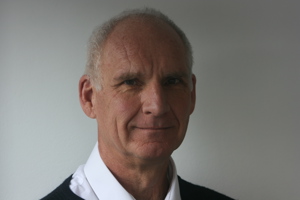Fast Tracking Knowledge and Human Capital for Net Zero Energy Systems
When world leaders come together to discuss a common goal as they did during the climate summit COP26, this collaboration can deliver some notable achievements.
The Breakthrough Agenda is one ambitious outcome from the talks in Glasgow, a pledge from more than 40 countries to ‘turbo-charge’ the uptake of clean technologies with an aim of making it easier to channel global private investment into low-carbon infrastructure.
Although government-led targets can drive forward global progress, the urgency of the climate crisis cries for further action. Even in light of a now-scientifically proven existential threat, humanity has trouble overcoming the massive barriers of national interest, company self-interest, system inertia and gross inequality. It feels like we are still a long way off keeping the 1.5 degree ambition alive, and the UK government’s Climate Change Committee has re-enforced this again: ‘the UK must not walk away after COP26… at home, we need to walk the talk and urgently deliver actions in the Net Zero Strategy’.
Can we be optimistic that fast solutions can actually be found?
Sitting at the western end of the Oxford-Cambridge Arc, I am encouraged by how quickly the region has galvanised an infrastructure that can attract and produce, develop, finance, and commercialise new low carbon technologies at speed, and at scale. Young companies such as Mixergy, who create efficient, intelligent hot water tanks, Yasa and Saietta who both develop electric motors, Oxford PV producing silicon-perovskite tandem solar cells, Arrival developing electric vans and buses manufactured at micro-scale plants, and Brill Power’s battery management systems will provide some ‘building bricks’ of a new low carbon energy system: some are already showing the potential to be unicorns. Oxfordshire has four different approaches to fusion, three of which are private sector financed and so are focussed on commercial returns. It’s great to see this innovation underway across the Arc but also the wider UK, including innovation stimulated by the Government’s 10 Point Plan for a Green Industrial Revolution.
However, developing just the ‘building bricks’ of a new system is not enough: we have not yet designed what the overall design of the new energy system ‘house’ is going to look like, and how these building bricks will create it. Put simply, we need to move away from the current three separate command and control energy systems (oil, gas and power), which are unidirectional in energy flow and have fairly predictable demand profiles. These will be replaced by a single, integrated, and decentralised energy system that is powered by intermittent renewable energy, and where consumers both provide and take energy.
Delivering this transition will require new technologies and services (the ‘bricks’), but they will need to operate in a yet unknown market (our future ‘house’). Innovation in technologies and services must evolve in alignment with innovation in regulation, finance and policies to minimise business risks. Doing this at speed is a massive challenge, that will involve all stakeholders working together. There are many complicating factors that make this huge challenge even harder: one of which is that we need to transform our existing energy system without any interruption of supply (we cannot simply switch the current system off!) and a second is that we must build in consumers’ real-world behaviour into the decentralised system operation from the start.
The Government’s Prospering from the Energy Revolution (PFER) Challenge is starting to tackle these big systems challenges.
The core of this programme is three large-scale demonstrators, two of which are in Oxfordshire: Energy Superhub Oxford (ESO) and Project LEO (Local Energy Oxfordshire), which when combined represent an investment of almost £100m. Why are these located in Oxford? I am convinced one key reason is that, over the last 10 years and over a huge number of projects, we have focussed on breaking down traditional innovation silos: silos between disciplines, silos within organisations and silos between organisations. We are learning how to bring together academia, industry, public sector organisations, community interest companies and consumers to fast-track development of both knowledge and human capital.
We are adding further momentum to this ecosystem with two new developments at the end of 2021. Firstly, at COP26, the University of Oxford launched an International Community for Local Smart Grids (ICLSG), which will see community energy groups and electricity networks actively share key learnings from innovation projects around the globe. Secondly, we are opening a pilot of The Energy Systems Accelerator (mini-TESA), where 100 people from three organisations will be co-located (and others hot-desking) to jointly innovate in net zero energy systems: activity will range from leveraging university research to real world deployment. OxLEP and the Get Building Fund supported the refurbishment of this mini-TESA, and occupants will trial new co-innovation and post-Covid working methods.
Mini-TESA is a start, but it is not nearly enough in light of the enormous scale of the challenges and their timescales. The ambition is to co-locate 800 people, encompassing all stakeholder organisations and all disciplines to innovate in low carbon energy systems at speed. Activity will co-create innovation with users and the investment community, and also undertake research, development and trails of technology, services and business models. Two key features of the activity will be a series of ‘Sprints’ focusing on difficult challenges, smoothing a pathway to net zero energy systems operation, and a series of UK and global knowledge exchange programmes to increase innovation efficiency globally, drawing knowledge from and influencing research and demonstrators across the Arc and the UK.
TESA will require a new building and real estate, given its size and unique purpose. With Government support to ensure fast delivery of TESA and learning from mini-TESA’s activities underpinning building design, our analysis indicates that by 2050, TESA’s activities can deliver an additional 9,000 jobs annually and in the order of £100M GVA annually. It will contribute to Levelling Up within Oxfordshire, across the Oxford-Cambridge Arc and nationally. But perhaps most importantly, TESA will underpin delivery of the UK’s net zero targets and bring together UK and global stakeholders to help bring forward delivery of the COP26 commitments.
The co-location of stakeholders in TESA will underpin delivery of UK targets and smooth the pathways for innovation across the UK, and so increase the efficiency of innovation. It will challenge the ‘optimism bias’ and ‘group think’ that has contributed to failures in past major infrastructure projects in the UK. And fundamentally it will further underpin the UK’s global leadership in net zero systems, leading to increased trade opportunities and inwards investment. To deliver this global leadership, TESA’s knowledge exchange activity will need to harness activity across the Oxford-Cambridge Arc and the UK, so ensuring the UK has scale to compete with the likes of Silicon Valley.
Get in touch



